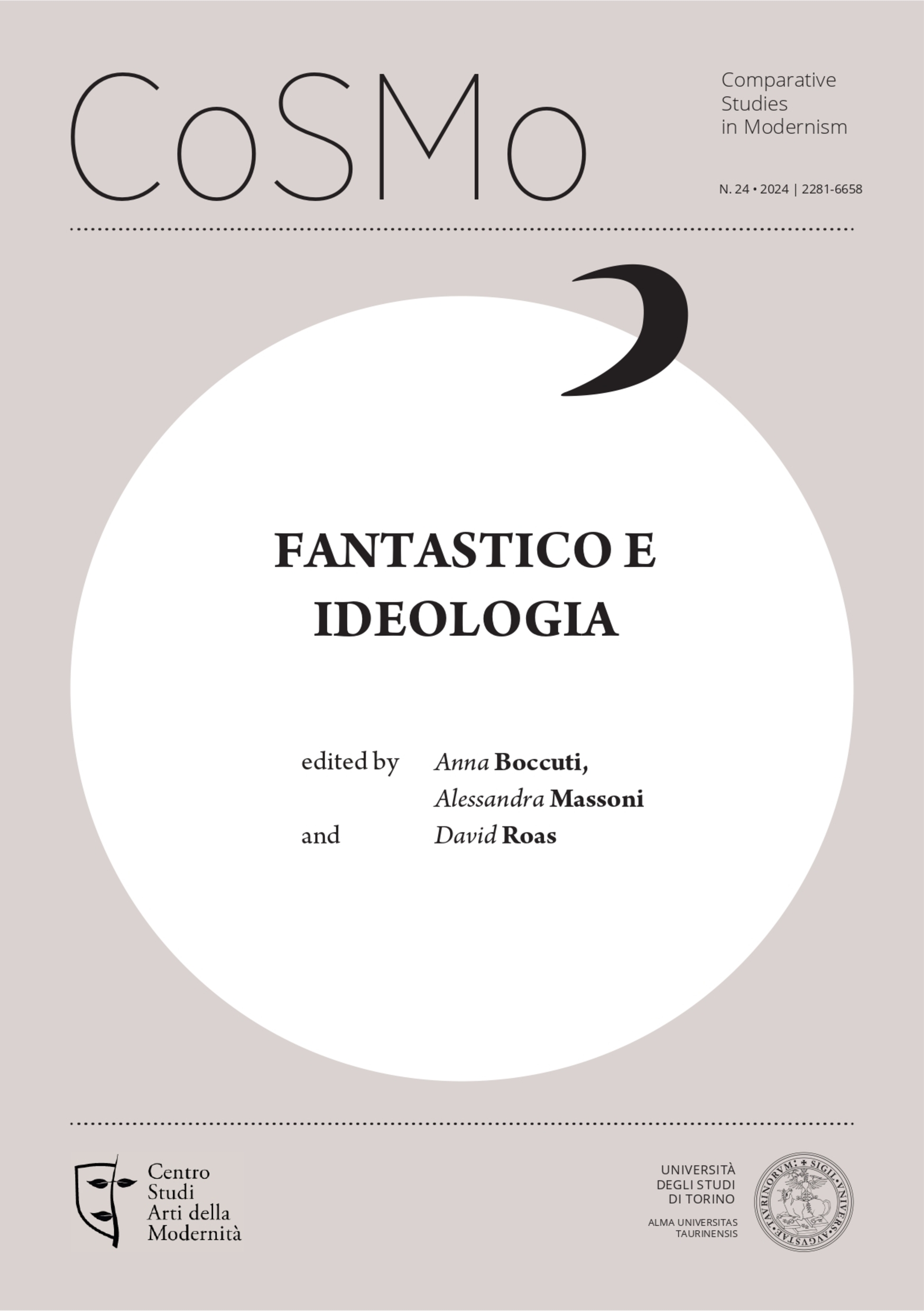Paredes de piel
Enfermedad, ideología política y fantástico en “Pesadillas” de Julio Cortázar
DOI:
https://doi.org/10.13135/2281-6658/10686Parole chiave:
Julio Cortázar, Body, Sickness, Fantastic Literature, IdeologyAbstract
The present article considers the short story “Pesadilla” (Deshoras 1982) by Julio Cortázar, with the purpose of reflecting on the representation of the protagonist’s sick body, and the fantastic dynamic that it reveals, as a discursive device that reflects and criticizes the social perversion that the last Argentine dictatorial regime carries out. The theoretical hypothesis that drives this study is based on the observation of the fertile relation between the representation of the character’s body and the articulation of the fantastic mechanism in the stories of Julio Cortázar, that allow us to think of the body as a function of fantastic logic (Cannavacciuolo 2020). According to this approach, in the story considered, Mecha’s body becomes the inter-mediate element (Lugnani 1983, Bhabha 1994) between the two ontological orders of different nature that collide in the story, as well as the point of friction that externalizes the ambiguity of fantastic element. The next step is the analysis of the construction of the protagonist's corporeal gestures as infralanguage (Galimberti 2013 [1983]); since the young woman's body becomes an area where a slippery meaning is generated, which allows access to oblique and heterogeneous ontological and epistemological orders and structures and, with them, allude to another story, silenced by verbal language and where lies the unsolvable mystery of where the sinister element comes from.
Downloads
##submission.downloads##
Pubblicato
Fascicolo
Sezione
Licenza
Gli autori mantengono i diritti sulla loro opera e cedono alla rivista il diritto di prima pubblicazione dell'opera, contemporaneamente licenziata sotto una Licenza Creative Commons - Attribuzione che permette ad altri di condividere l'opera indicando la paternità intellettuale e la prima pubblicazione su questa rivista.







